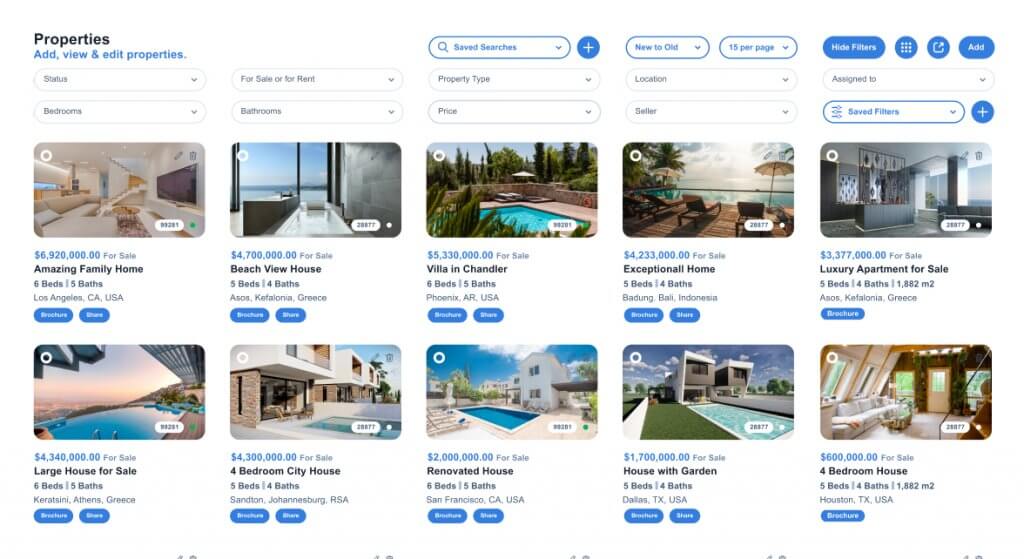With more and more real estate companies turning away from manual methods in favour of automated software, CRM software development has reached new heights. Buyers are now searching for upgraded versions of the software they are currently using, rather than opting for a first-time basic solution. This means that the race to develop a better, more efficient product, is becoming more and more competitive.
Even though contact management, tracking interactions, scheduling and providing reminders are still the most highly requested features of a CRM, in the past year a new feature has gained momentum – lead generation and lead management. Almost a fifth of buyers in 2018 named this feature as one of their most highly requested functionalities (source: Software Advice). This has shifted the paradigm that CRM Systems are mainly used for managing existing clientele, showcasing that onboarding functions are just as important.
As real estate sales teams continue working with marketing departments to achieve higher levels of lead generation, CRM Systems will have to keep up by including enhanced marketing features in their systems.
CRM Systems will have to aid real estate companies in making their marketing budgets more effective, their client databases more sales-ready while nurturing their leads through the existing sales process. They will need to offer tools for mass email marketing campaigns, with options to create a library of templates, highlight hot leads by tracking click rates, generate property proposals and help gather important client insights. They will need to give the ability to run multiple franchise offices from one system and have SMS integrations to support targeted campaigns.
Social media listening plugins will soon also become a necessity for RE CRM systems, helping to optimise the digital marketing processes. By offering an ocean of sales opportunities, social media has already become the number one channel for sales and marketing specialists, and it will keep its position in years to come. By offering users options to monitor social media channels, post on different accounts from one place, analyse trends and engagements, CRM Systems will secure their place as one of the most needed automation tools in the real estate industry today.
Finally, CRM Systems will need to provide analytics that will allow marketing specialists the ability to personalise their campaigns. With deep personalisation being one of the main growing trends in the industry, educating marketing and sales specialists on client preferences will help target audiences in the right way while approaching them with the information they find interesting and useful. It will also help to create customer-focused content for blogs and social media channels that will help to grow website traffic and eventually generate more leads through those channels.
CRM Systems were created to help businesses bring the best service possible to their clients and have become a necessity for small and midsize companies to grow. With workflow automation in hand, future systems will need to add advanced, personalised marketing features to their portfolio too.




